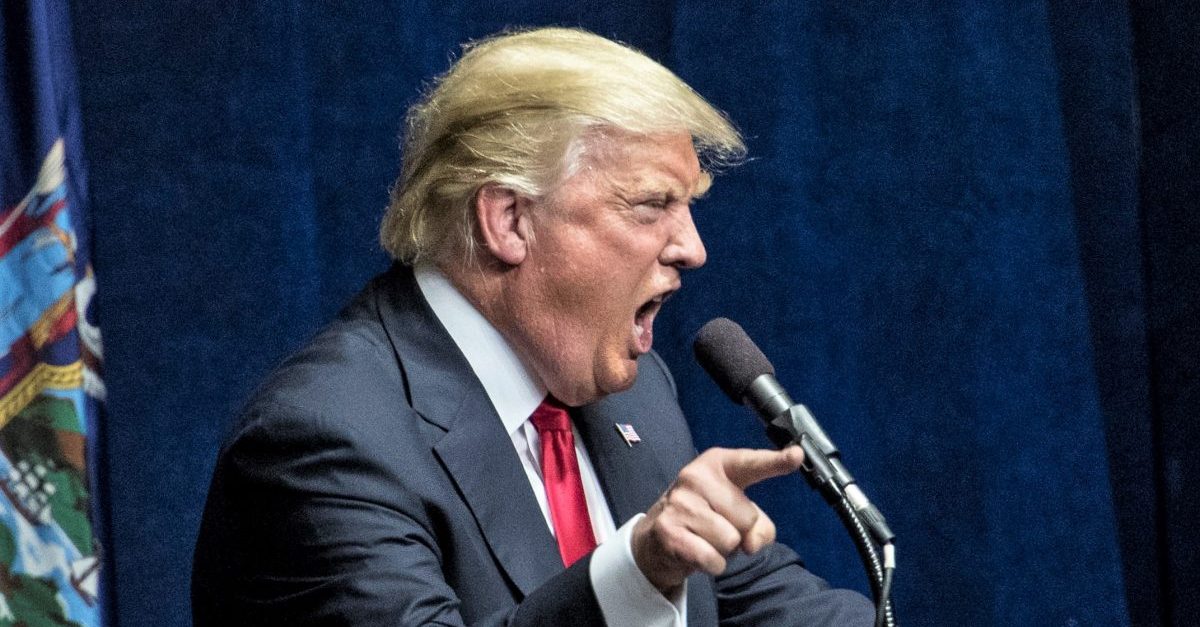 Don’t look now, but our child president is throwing a hissy fit in support of his favorite entertainers.
Don’t look now, but our child president is throwing a hissy fit in support of his favorite entertainers.
I am continuing to monitor the censorship of AMERICAN CITIZENS on social media platforms. This is the United States of America — and we have what’s known as FREEDOM OF SPEECH! We are monitoring and watching, closely!!
— Donald J. Trump (@realDonaldTrump) May 3, 2019
The wonderful Diamond and Silk have been treated so horribly by Facebook. They work so hard and what has been done to them is very sad – and we’re looking into. It’s getting worse and worse for Conservatives on social media!
— Donald J. Trump (@realDonaldTrump) May 3, 2019
So surprised to see Conservative thinkers like James Woods banned from Twitter, and Paul Watson banned from Facebook! https://t.co/eHX3Z5CMXb
— Donald J. Trump (@realDonaldTrump) May 3, 2019
It really would have been a great idea if someone had showed Donald Trump some Schoolhouse Rock before he moved into the Oval Office. If someone had sandwiched some between Hannity and Pirro, there’d at least have been a chance. Trump’s lack of understanding about the First Amendment is a microcosm of the problem of his entire presidency; he is flatly unable to separate the public from the private.
The First Amendment protects individuals from overly-intrusive government regulation of speech. First Amendment law can be complex, because the definition of “speech” goes beyond the spoken word, and because other, more amorphous rights (such as the right to privacy) are grounded in First Amendment principles. That’s a story for another day.
When we’re talking about a person’s written or spoken words (collectively referred to as “speech”), things are relatively straightforward. Apart from a few specific exceptions (such as fighting words, obscenity, and defamation), government regulations about the content of a person’s speech are prohibited. Sure, there are legal experts who dedicate their entire careers to defining the precise boundaries between speech that’s sacrosanct and that which is fair game for regulation. But that’s not the debate into which Donald Trump is throwing himself. He simply wants someone to force Mark Zuckerberg to follow the same rules that Congress does.
There is no complex First Amendment analysis that applies to the private regulation of speech. When a private person or organization stifles someone’s speech, the First Amendment is as irrelevant as broccoli on Air Force One. Your neighbor can tell you to stop talking. Your employer can forbid you from emailing. And your social media platform can throw you off. It’s all perfectly legal.
Rules about communications, as enforced by a non-government entity, don’t have to be fair or applied evenly. They can be influenced by some social or political agenda, and can even target specific people or viewpoints if they choose.
I realize that Donald Trump is likely as confused by technology as he is by the proper use of capital letters; to him, Twitter is an amorphous deity and Diamond & Silk are divine prophets. But I can save the Trump administration some time. I’ve already “looked into” things.
Twitter, Facebook, and everyone else who isn’t the government can silence anyone they want whenever they want. The next primer I’d suggest for President Trump is one called, “Conservatives: The People Who Are Supposed to Value Minimal Government Intrusion On Liberty.”
[Photo by Andrew Renneisen/Getty Images]
This is an opinion piece. The views expressed in this article are those of just the author.